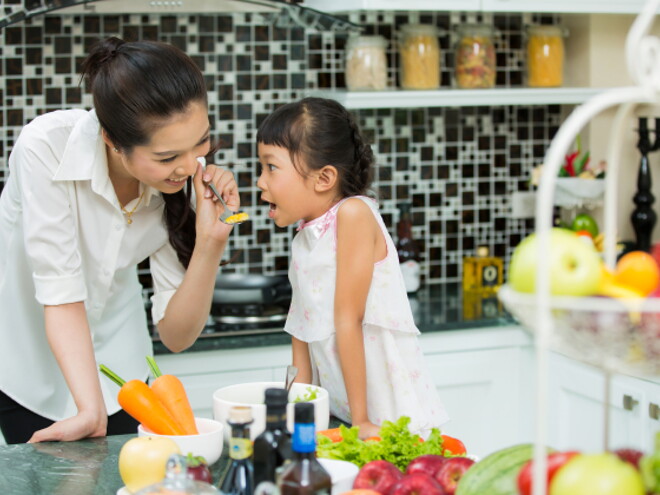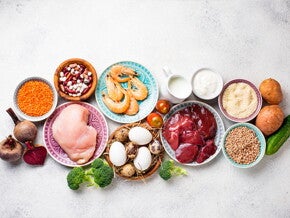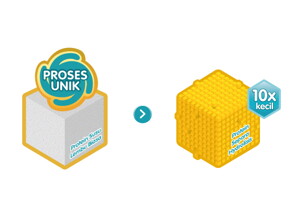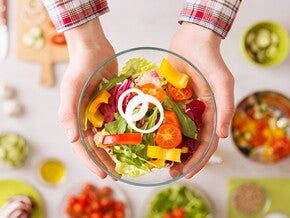
How to provide a healthy toddler diet
A healthy toddler diet now can set your little one up for a lifetime of healthy eating. Here are some nutrition building blocks for the best food for toddlers.
Tips
- Avoid too much sugar, salt or saturated fats.
- Offer a variety of foods, to train your toddler’s taste buds.
- Aim for 2-3 portions of milk and dairy (or suitable plant-based substitutes) a day.
- Aim for 5-7 portions of fruit and veg a day. They can be fresh, frozen, raw, cooked, canned, juiced or even dried.
- Aim for 2-3 portions of lean meat for toddlers a day, or fish or vegetarian protein alternatives.
- Aim for 3-4 portions of starchy carbohydrates a day. Keep the portions small as carbs can be very filling.
- Remember that toddler-sized servings are much smaller than adults’. A serving of bread for a one to two-year-old is around half a slice, and a serving of meat is around 30g (1oz) — that’s about a third of your palm.
- Give your toddler more food if he shows you that he’s hungry. Just don’t overload his plate with too much at the start.
- Choose unsaturated fats from vegetable sources (e.g. rapeseed or olive oil) instead of foods deep-fried in trans or saturated fats, such as chicken nuggets or fries.
- Serve in appropriate sizes and texture — whole carrots and whole grapes are potential choking hazards. Grapes should be cut up in half lengthwise, and carrots should be cooked soft and cut into bite-sized pieces.
- Growing minds and bodies use up their reserves quickly. Keep your toddler topped up with 1-2 healthy snacks a day.
- Aim for 6-8 drinks a day. Water and unflavored milk (or plant-based alternatives like soya or rice milk) are best. Avoid fizzy drinks and sugar-sweetened beverages.
- Some health authorities recommend giving very young children and toddlers vitamin D supplements, as it can be difficult getting enough from sunlight and diet alone. Speak to your healthcare provider for advice.
- If you think you’ve got a picky eater, read our checklist on how to help.


























